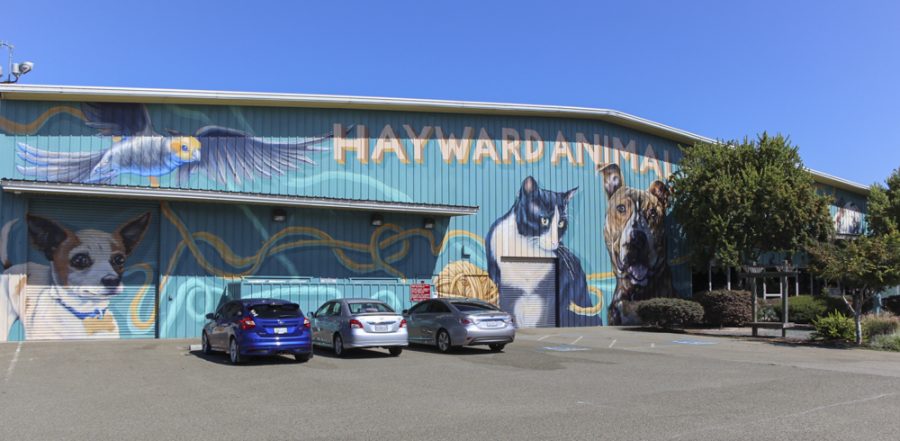Hayward animal shelter under quarantine
August 10, 2016
Last month, a two and half month old, healthy-looking kitten was brought to the Hayward Police Department Animal Shelter. It was active, feisty, appeared healthy upon arrival and even received a routine deworming. The next morning, however, it was discovered lying in its kennel, lethargic and severely ill.
A fecal exam revealed that the kitten tested positive for feline panleukopenia, a highly contagious virus that affects the blood cells of felines, according to Animal Services Administrator Jennie Comstock. Eleven cats who tested positive or had been directly exposed to the virus, were euthanized on July 27 to prevent further spreading of the virus, according to Sgt. Ryan Cantrell of the HPD.
“We don’t often get these situations,” Comstock, who has worked at the shelter for 16 years, told the Pioneer. “In my time here I haven’t seen this number of cases come through. It’s the worst we’ve ever seen it.”
Feline panleukopenia — commonly known as “feline distemper” — is a life-threatening virus that affects a cat’s blood cells, specifically the intestinal tract and bone marrow, according to PetMD.
The illness is unique to felines but comparable to the parvovirus for dogs, Comstock explained, and can often go undetected, causing sudden death. Symptoms include diarrhea, lethargy, vomiting, lack of appetite and dehydration. The virus is contagious to other felines through fecal to oral contamination, clothing contamination and nasal discharge and can be spread two to three days prior to the appearance of any symptoms. However it is not harmful to humans or other animals.
The HPD animal shelter vaccinated every animal brought in, but if a feline is already carrying the virus or has been exposed to it, a vaccine won’t reverse it, Comstock said. Treatment for panleukopenia is costly and extensive: It involves IV’s and hospitalization, continuous care and emergency room clinic visits, with no guarantee of recovery. The shelter isn’t accepting any new cats — domestic or feral — for 21 days.
“We don’t want to risk exposing other cats, which is why we stopped taking in friendly or feral cats at this time,” Comstock said.
The remaining cats in the shelter have been quarantined and are under observation for any symptoms, which could appear within 14 days after the initial exposure.
“It’s very frustrating for everyone because we come in to provide care for all these animals…everybody here is very compassionate and it’s very hard,” Comstock said. “All we can do is educate and provide the best care to the animals still in the shelter and try to beat this.”
Cats are currently being checked twice a day and the entire ward thoroughly cleaned with Accel disinfectant, a hydrogen peroxide recommended by the UC Davis Shelter Medicine program. Litter boxes are changed daily and debris, food and feces in the cage are removed. So far, there have been no more cases of the outbreak, according to Comstock.
The shelter is suggesting that people attempt to track down the homes of friendly, healthy cats found on the streets during the quarantine period. Feral cats should be released back where they were found or taken to a spay/neuter clinic.
Comstock said most cats are exposed to panleukopenia at some point in their lives, but not all cats get sick. While the shelter sees cases of panleukopenia from time to time, upper respiratory infections such as “kennel cough” are more common and easier to treat.
Kittens between the ages two to six months are at the highest risk for the virus, reports PetMD. Comstock said the virus is most common in the spring and summer months during kitten season, due to the increase in unvaccinated cats and kittens.
The virus is preventable with the FVRCP vaccination, a routine immunization administered to kittens between six to eight weeks old. Kittens receive a series of shots every three to four weeks until they are 16 weeks old, and after that receive an annual booster, reports PetMD. The HPD shelter has no veterinarian on staff, but maintains a contract with Eden Pet Hospital in Castro Valley, from which a vet visits twice a week and does rounds.
The HPD Animal Shelter takes in approximately 3,400 animals per year from within the Hayward city limits — including dogs, cats, rabbits, guinea pigs, chickens, roosters and even reptiles, according to Comstock. During the summer months, the population reaches as high as 215 and in winter around 80.



